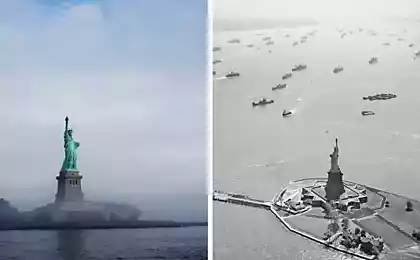1033
Some historical facts about the anchor.
Will be 10 photos + text.
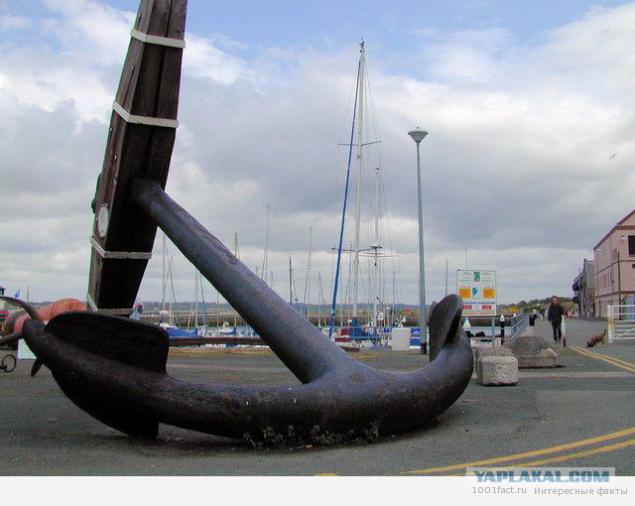
Some historical facts about the anchor
Not all ship run back and forth on the waves. There comes a time when for the convenience of the seafarer it should freeze motionless - either at the dock or off the coast. But the ever-restless waves, currents and wind can cause the ship to drift where the elements you want. In that case, many, many thousands of years ago, was coined by agent - anchor.
In the early days of navigation, even when a person is not removed ventured far from the coast, was anchored to primitive simple. He took a rope tightly tied them pouvesistee stone - ready! Or, for the greater reliability, pre-drilled hole in it. By the way, this "anchor" successfully survived to our days in a fishing boat, katerke, yachts and other small-sized boats. Engaging simplicity!
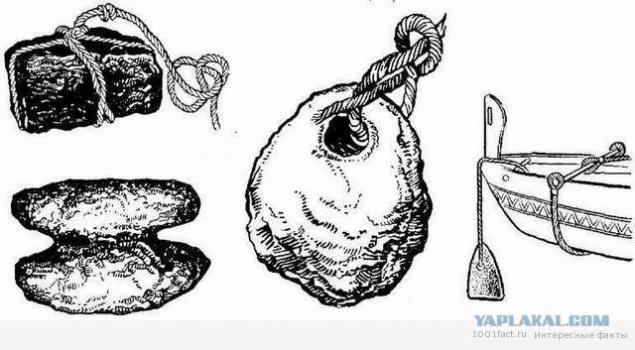
However, over time it took other anchor firmly cling to the bottom and keep the boat in one place. For this task, the stone is no longer suited. About 3000 years ago, we invented the Malays horned anchor is made of solid wood. If the "horn" to bite into the bottom ground - the ship stood rooted to the spot. Well, if you went to the bottom of the flat part? Nevezuha ...
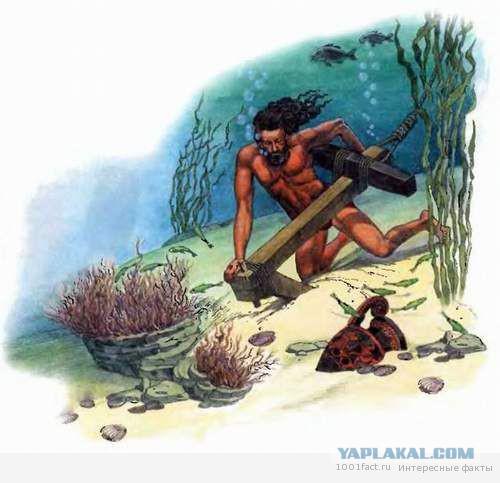
From such bad luck and decided to insure themselves Chinese craftsmen. Around the end of the 1st millennium BC the ship's anchor and become a two-horned took shape, very close to the present. Produced it still made of wood, but for the greater strength okovyvali iron. Appeared and stem, enhances traction; yet it was located at the bottom, a little above the connection legs.
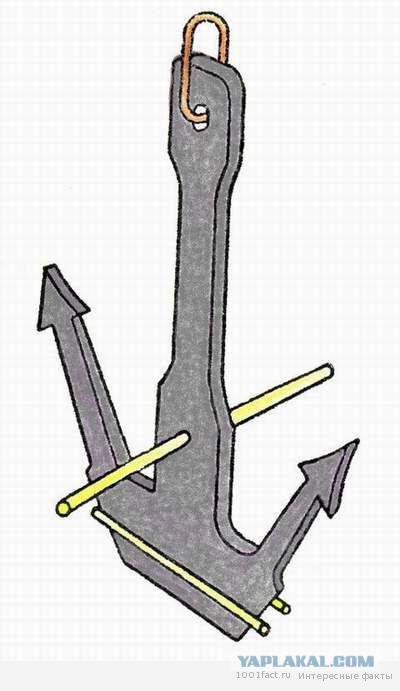
Around the same time, its truly weighty word said by the ancient Romans. "Weighty" - because the conquerors of the Mediterranean Sea anchor cast in bronze or forged iron. Wooden rod moved up a brace for war. As an option, and made wooden ship anchors, but the stock they had a heavy, leaden. The value of a Roman anchor was high. It was decorated by various sacred inscriptions, is meant to assist in the sea journeys.
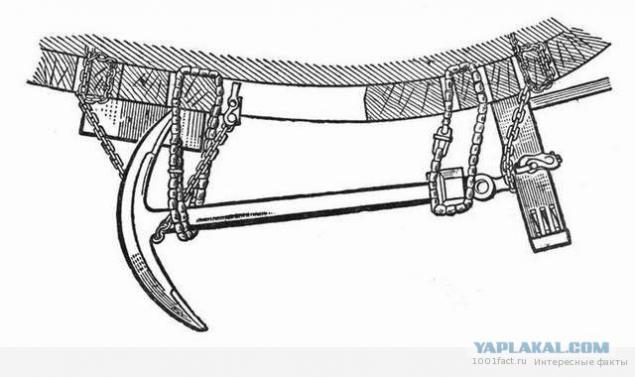
The direct successor of the Roman ship's anchor was the classic admiralty. Start in life it gave in the 20s of the XIX century British Admiralty itself, and after rigorous testing of various designs. Won steel forging and successful form. Such an anchor on almost any day to keep the vessel of any tonnage tightly. But it is suspended at the side "without work", because of its weight and awkwardness became dangerous for the ship itself, and floated nearby vessels.
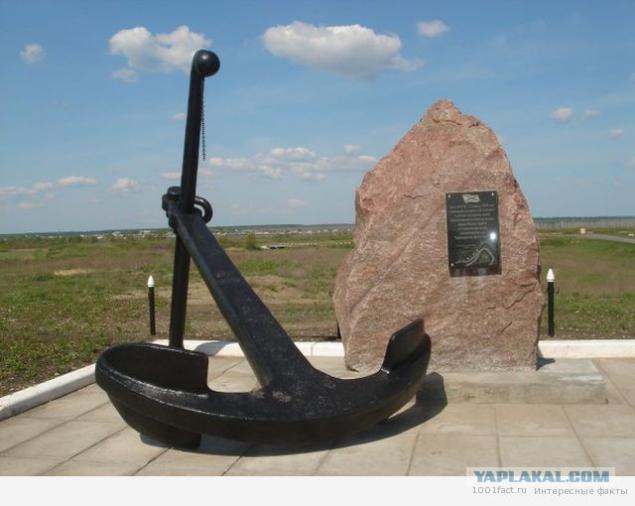
In 1885, the Englishman Hall, Managing Director and former captain, patented an unusual anchor. He planned to present a sacrilege - refuse hindered all on board stock! Five years later, the same British Admiralty "blessed" cast iron anchor the Hall - and miscalculated. Turns to the axis of the anchor legs flat, gave on the go, in a few seconds and take ground even immobilized tankers! Not only that: with an anchor tied Hall technological revolution in the industry, show the advantages of cast iron!
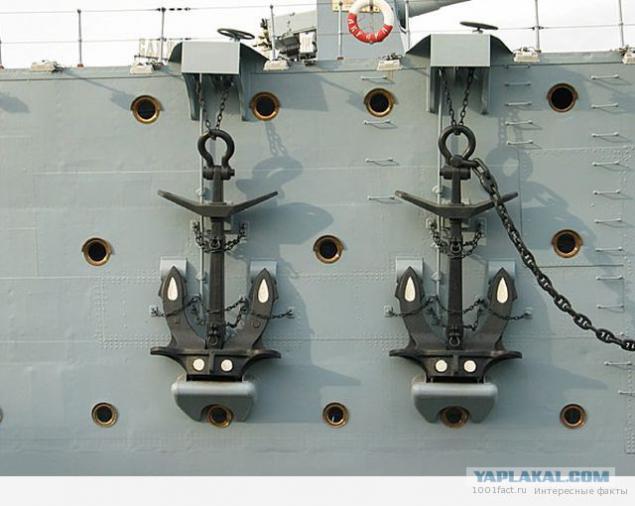
We know how high he carried in 1910 the British Navy Her Majesty's First Lord of the Admiralty, Sir Winston Churchill. His love for the fleet led, however, to the strangeness: the great politicians of the XX century, did not like to be photographed bare-chested. The fact is that on the right shoulder, Churchill, like any self-respecting sailor image tattooed anchor. After becoming, by the way, one of the first politicians to tattoo.
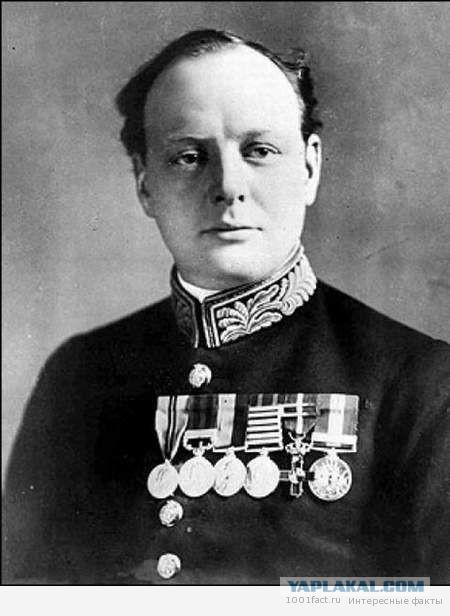
Among the sand dunes of the island of Tavira, near that of Portugal, lies the unprecedented spectacle - the cemetery of anchors (The Cemiterio das Ancoras). But this is not the legendary Island Shipwreck. Anchors were not made for the ships, and to hold the bottom of the fishing nets meant for tuna. And this technology in ancient times was invented by the Phoenicians. As time went on, tuna gone to other places, fishermen moved behind him - and remained an anchor.
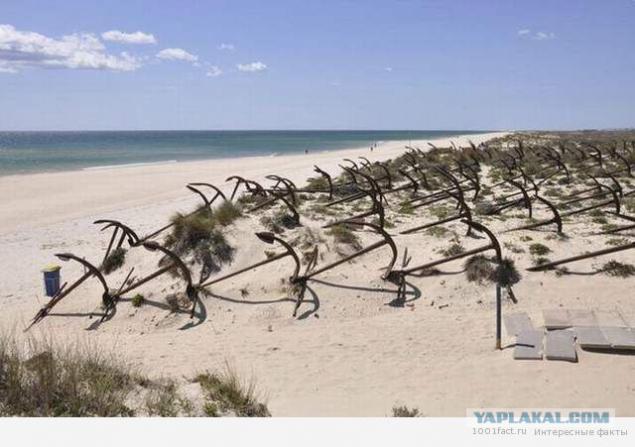
And Crimea Cape Tarhankut can be proud of the world's only museum of anchors under water. Enough to wear scuba gear and dive into the waves of the Black Sea - offers diving excursions to the 20-meter depth. Anchors are buried very different: there is a huge left from the mighty battleship, there are quite tiny compared to him, belonged motor sailing schooner. The oldest anchor - for 200 years.
1001fact.ru/2014/02/nekotorye-istor...fakty-o-yakore/
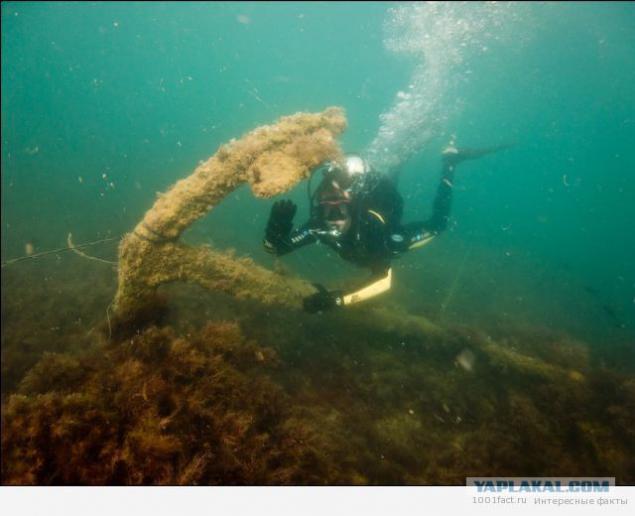
Source:

Some historical facts about the anchor
Not all ship run back and forth on the waves. There comes a time when for the convenience of the seafarer it should freeze motionless - either at the dock or off the coast. But the ever-restless waves, currents and wind can cause the ship to drift where the elements you want. In that case, many, many thousands of years ago, was coined by agent - anchor.
In the early days of navigation, even when a person is not removed ventured far from the coast, was anchored to primitive simple. He took a rope tightly tied them pouvesistee stone - ready! Or, for the greater reliability, pre-drilled hole in it. By the way, this "anchor" successfully survived to our days in a fishing boat, katerke, yachts and other small-sized boats. Engaging simplicity!

However, over time it took other anchor firmly cling to the bottom and keep the boat in one place. For this task, the stone is no longer suited. About 3000 years ago, we invented the Malays horned anchor is made of solid wood. If the "horn" to bite into the bottom ground - the ship stood rooted to the spot. Well, if you went to the bottom of the flat part? Nevezuha ...

From such bad luck and decided to insure themselves Chinese craftsmen. Around the end of the 1st millennium BC the ship's anchor and become a two-horned took shape, very close to the present. Produced it still made of wood, but for the greater strength okovyvali iron. Appeared and stem, enhances traction; yet it was located at the bottom, a little above the connection legs.

Around the same time, its truly weighty word said by the ancient Romans. "Weighty" - because the conquerors of the Mediterranean Sea anchor cast in bronze or forged iron. Wooden rod moved up a brace for war. As an option, and made wooden ship anchors, but the stock they had a heavy, leaden. The value of a Roman anchor was high. It was decorated by various sacred inscriptions, is meant to assist in the sea journeys.

The direct successor of the Roman ship's anchor was the classic admiralty. Start in life it gave in the 20s of the XIX century British Admiralty itself, and after rigorous testing of various designs. Won steel forging and successful form. Such an anchor on almost any day to keep the vessel of any tonnage tightly. But it is suspended at the side "without work", because of its weight and awkwardness became dangerous for the ship itself, and floated nearby vessels.

In 1885, the Englishman Hall, Managing Director and former captain, patented an unusual anchor. He planned to present a sacrilege - refuse hindered all on board stock! Five years later, the same British Admiralty "blessed" cast iron anchor the Hall - and miscalculated. Turns to the axis of the anchor legs flat, gave on the go, in a few seconds and take ground even immobilized tankers! Not only that: with an anchor tied Hall technological revolution in the industry, show the advantages of cast iron!

We know how high he carried in 1910 the British Navy Her Majesty's First Lord of the Admiralty, Sir Winston Churchill. His love for the fleet led, however, to the strangeness: the great politicians of the XX century, did not like to be photographed bare-chested. The fact is that on the right shoulder, Churchill, like any self-respecting sailor image tattooed anchor. After becoming, by the way, one of the first politicians to tattoo.

Among the sand dunes of the island of Tavira, near that of Portugal, lies the unprecedented spectacle - the cemetery of anchors (The Cemiterio das Ancoras). But this is not the legendary Island Shipwreck. Anchors were not made for the ships, and to hold the bottom of the fishing nets meant for tuna. And this technology in ancient times was invented by the Phoenicians. As time went on, tuna gone to other places, fishermen moved behind him - and remained an anchor.

And Crimea Cape Tarhankut can be proud of the world's only museum of anchors under water. Enough to wear scuba gear and dive into the waves of the Black Sea - offers diving excursions to the 20-meter depth. Anchors are buried very different: there is a huge left from the mighty battleship, there are quite tiny compared to him, belonged motor sailing schooner. The oldest anchor - for 200 years.
1001fact.ru/2014/02/nekotorye-istor...fakty-o-yakore/

Source:

